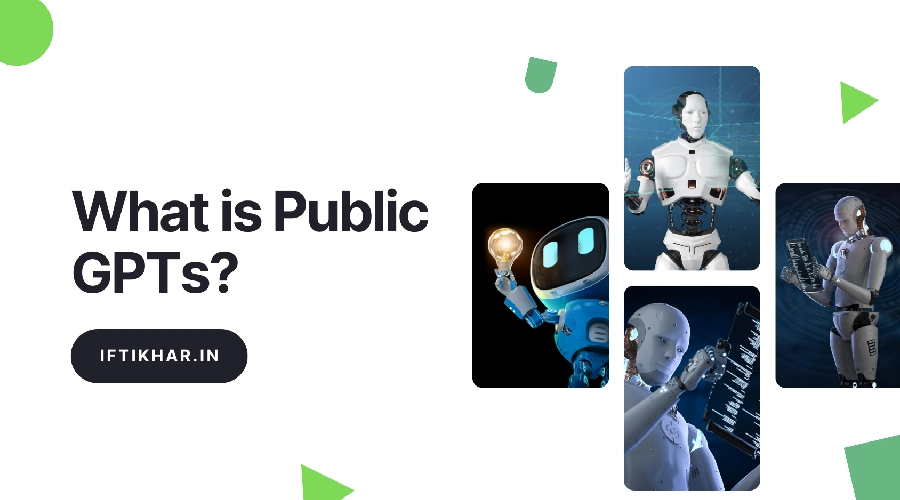In the world of artificial intelligence (AI), Generative Pre-trained Transformers (GPTs) have emerged as formidable tools, capable of processing and generating human-like text. While proprietary GPT models have captured the spotlight, Public GPTs represent a significant stride towards democratizing AI. This blog aims to delve into the realm of Public GPTs, exploring their essence, functionality, and implications for the broader AI landscape.
Table of Contents
What is Public GPTs?
Public GPTs signify an open-access iteration of the GPT architecture, fostering inclusivity and collaboration within the AI community. Unlike proprietary models, Public GPTs are freely available for exploration, experimentation, and refinement by developers, researchers, and enthusiasts worldwide.
Key Features and Functionality
Public GPTs encompass a suite of features akin to their proprietary counterparts, including:
- Text Generation: Proficiency in generating coherent and contextually relevant text based on user inputs.
- Language Comprehension: Ability to comprehend and interpret diverse language patterns and nuances.
- Customization and Adaptability: Flexibility for fine-tuning and adapting to specific tasks, domains, or languages.
- Open Collaboration: Encouragement of open collaboration, knowledge-sharing, and innovation within the AI community.
Applications and Use Cases
Public GPTs boast diverse applications across industries and domains, including:
- Content Creation: Streamlining content generation processes for writers, marketers, and publishers.
- Conversational Interfaces: Enhancing the capabilities of chatbots, virtual assistants, and conversational AI.
- Language Translation: Facilitating more accurate and contextually relevant translations across languages and dialects.
- Education and Research: Driving advancements in natural language processing (NLP), machine learning, and AI research.
Challenges and Considerations
Despite their potential, Public GPTs present certain challenges and considerations:
- Ethical Use: Ensuring responsible and ethical utilization to prevent the propagation of biased or harmful content.
- Data Privacy: Addressing concerns surrounding data privacy, security, and the inadvertent exposure of sensitive information.
- Model Bias and Fairness: Mitigating biases and ensuring fairness in AI outputs to promote inclusivity and equitable representation.
Public GPTs herald a new era of accessibility and collaboration in the field of AI, empowering developers, researchers, and enthusiasts to explore the boundless possibilities of natural language processing. As we navigate the opportunities and challenges presented by Public GPTs, it is imperative to prioritize ethical considerations, foster inclusive innovation, and harness the transformative potential of AI for the betterment of society. With Public GPTs at our disposal, we embark on a journey towards a more inclusive, equitable, and intelligent future.


